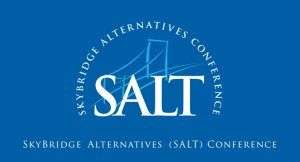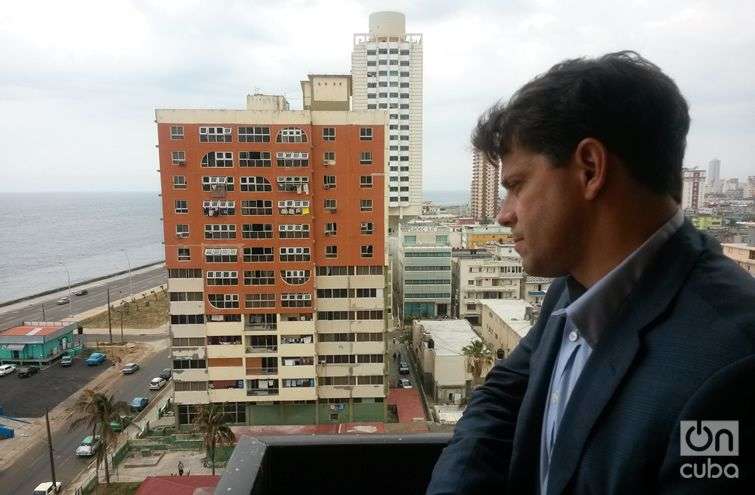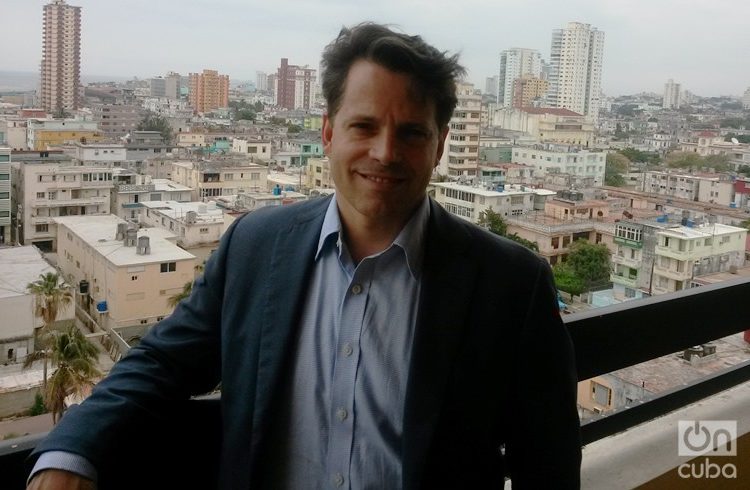The most exciting event in the economy this year is the reconnection of the economies of Cuba and the United States, and the prospects of that relation. That is the opinion of Anthony Scaramucci, founder and a co-managing partner of one of the most influential investment firms in the United States, SkyBridge Capital.
He is also the mind behind SkyBridge Alternatives, SALT Conference, a meeting point for business and government leaders, and a space for networking, attending investment seminars, and doing macro-economic analysis.
The last of these conferences was attended by renowned figures such as George W. Bush, Bill Clinton, Nicholas Sarkozy, Tony Blair, George Papandreou, Al Gore, Colin Powell, Paul Singer, Al Pacino, Kevin Spacey, Magic Johnson, and Francis Ford Coppola.
This year the conference will be held in Las Vegas, on May 10 through 13, and for the first time, it will include a panel on Cuba.
Now that merely a week has passed since Barack Obama became the first American president to visit Cuba in almost 90 years, Anthony Scaramucci believes that this is the perfect moment for Americans to learn first-hand about this country that is only 90 miles away from the coasts of the United States.
This is the right moment to look at the areas in which Cuba needs investment, and come up with better ideas for its future development. “We’re especially interested in projects to improve infrastructure, agriculture and technology. We want ideas for projects that improve the quality of life of the Cuban people, and are at the same time profitable for our investors,” said Scaramucci.
“Our idea is to do something that seems adequate for Cuba right now: we have started to discuss how we can create an investment fund for Cuba, and we are eager to exchange with the Cuban part about the best ways in which we can contribute to the development of the country, the services and the quality of life of citizens.
 Changes since 2012
Changes since 2012
“When I saw that the U.S. policy of rapprochement was heading to reconciliation and the ease of the embargo, I started to get in touch with people to get an idea of whether it was really possible to implement my projects here. Many things have changed since I first came to Cuba in 2012. There’s more access to the internet, and mobile technology is more effective.
“Over the last three years we have seen a proliferation of private businesses. It’s my impression that the Cuban government has ease regulations to allow for more freedom in the private sector. That’s what I see in restaurants, in the artistic community, and even in some small stores in Old Havana. There’s more business initiative, more of an entrepreneurial spirit, more than three or four years ago.
Projects that could be successful
“At the moment we want to develop projects based on the needs of Cuba. What we’ve seen is that those needs are in infrastructure, telecommunications, roads, and power supply. At a second level, there’s the need for technology, we would like to make sure that there’s more access to technology in schools, businesses and agriculture.
“In Cuba there are people with a high level of training and skills. I think that making the right investments in agriculture, for instance, would be a way to promote that high level of proactivity, and diversify even more all the sectors in agriculture, not only sugar cane, but also other crops.
“This year at one of the SALT Conference panels we’ll be talking about opportunities in Cuba, and about how Cuba can better participate of the world economic system.
Cuba in the world economic system
“Other countries are already trying to integrate the free market system, like Vietnam and China, and they keep their cultural identity and their socialist ideas.
“One of the models confirming this is what Vietnam has accomplished in the last 15 years following the elimination of the embargo. What they’ve done has improved the quality of life of the people considerably, and it is a successful model. I see even more opportunities for Cuba, given that the country is in the Western hemisphere, close the United States, and because of the cultural ties that both countries share. There are many Cuban immigrants in the Unites States, especially in Florida. I think a very easy and powerful connection can be established between both communities.

Cuba at the 2016 SALT Conference
“In 2016 we will invite a delegation of Cubans, including the CEO of Fuego Enterprises Hugo Cancio, and university professors and academics, economists, as well as government officials from the trade sector.
“Many Americans in Florida have a very good understanding of Cuban reality and the interconnections between both countries, but the average American doesn’t have a deep understanding of the culture and the entrepreneurial spirit that you find in Cuba.
“I think the situation is oversimplified to one country being capitalist and the Cuban system originating from communism, and as a consequence, there’s an embargo. However I think that many Americans would like to get in touch with Cuba and its culture. That is why one of the things we will do with the 2200 delegates at the SALT Conference in 2016 is to give them more information about these issues, so that they have the opportunity to change the notions they have of Cuba, not only from an economic perspective, but also regarding its culture, literature and arts.
Businesses and creativity
“Ours is one of the most popular conferences in the United States. We want to present new programs and fresh ideas, something that can be exciting for participants. We don’t have a fixed formula, we just follow the reflection of what is going on in the world.
“In my opinion, the biggest story of 2016 and the most exciting event in the economy is the integration of the Cuban and American economies. This is going to be something big and powerful for the two countries. And we want to be a part of it.
“We have a saying in English that is very appropriate in the case of Cuba: “Timing is everything”. I think our timing is very good because the conference will be in May, President Obama was here last week and there are big expectations around what can happen in the near future.
“What we want is that the people who attend our conference learn something new, we want it to be an enriching experience, and also an opportunity for them to meet people who can help them develop their businesses. Cubans could find investors there, or people who can help them with technology and ideas. As for the people getting to know the Cubans, that can help them see the economic prospects generated by this new opening for them and their clients.
“It would be very positive if we could help others in the investment process. It’s not only a matter of generating profit, it’s also about creativity. I think of the possibility to do business in Cuba as the intersection of those two ideas.”










